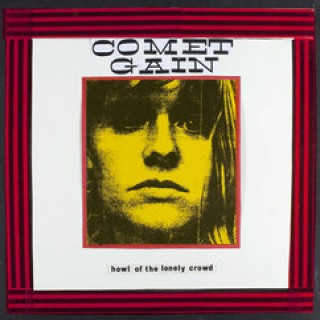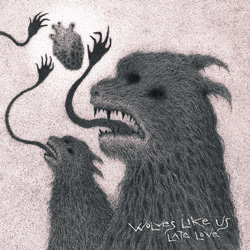Recently, Adbusters — a Canadian activist foundation that uses culture jamming and advertising spoofs to push an anti-consumerist agenda — came up with an idea to set up camp in New York’s financial district on September 17th. The small gathering of anti-capitalism and anti-corporatism protesters has turned into a monster of a political and social movement, prompting other Occupy Wall Street encampments to take shape not only in the US, but around the world.
With so many in the mainstream media making this out to be a joke, and right wing outlets so quick to dismiss the Occupy movement as a bunch of hippies who have no idea what they are protesting, I needed to get out there and see where these protesters are coming from.
On October 8th, I headed to downtown Los Angeles. Arriving at the encampment around noon, I found dozens upon dozens of tents sprawled across the many lawns of city hall. The area appeared relativity clean and organized, especially considering many had already called this area home for more than a week. Police presence was at a minimum, as I only spotted three officers in uniform during the span of the afternoon. With a music festival scheduled to start at noon, no one was at the microphone on the south end of the block. As I stood there taking in all the various signs, booths, and groups talking amongst themselves, I was caught off-guard by a single voice powered by a bullhorn at the edge of the block.
“It’s much bigger than Wall Street. It’s much bigger than just police brutality. It is a formation of a New World Order,” exclaims the man. These are the words of activist Shane Devins.
Originally from Las Vegas, Devins believes the corruption on Wall Street and in Washington, DC goes far beyond what we are led to believe. He believes organizations like the United Nations, the Bilderberg Group, the Council on Foreign Relations, and the Trilateral Commission are involved with an attempt to create a one world government. Using the private Federal Reserve as a vehicle to destroy the value of the US dollar by way of deflation, the destruction of the US economy will then give way to a new world currency regulated and controlled by the World Bank.
“It has taken almost a hundred years to cripple the US dollar,” says Devins. As I interview him, we search for water around the encampment. “And what Obama talked about at the G20 Summit 2009 is that the World Bank should be and will be the institution that will create a world currency, and that will be regulated under the World Bank and the World Bank will come under the authority of the United Nations.”
While some might balk at the notion of a conspiracy to usher in a one world currency, the actions of the Federal Reserve have brought on much scrutiny from many Occupy Wall Street protesters, leaving little room for straw-man arguments and calls of “kooky conspiracy theorists.”
Signs proclaiming “END THE FED” were a constant sighting at the LA Occupation. One must remember that the Federal Reserve is a private entity that doesn’t answer to Congress; their actions are kept in secret and their actions of manipulating monitory policy has proven to hurt the US economy more than help it. A number of protesters were also calling for the reinstatement of the Glass-Steagall Act, which prevented investment banks and commercial banks from merging. The act was repealed under the Clinton administration with the help of former Obama economic adviser Larry Summers. Many view the repeal as a precursor to the 2008 financial crisis.
Some of those in attendance aired out calls to end capitalism as a whole, though they were in the minority, despite attempts by the mainstream media to convince the public otherwise. Most in attendance were calling for an end of crony capitalism (i.e., “corporatism”). Corporatism is the merger of corporate and governmental powers — Benito Mussolini once stated that corporatism should essentially be called fascism, as many protesters would agree, charging that corporations own our leaders in Washington, DC by way of lobbyist money and the assignment of corporate big-wigs to high governmental positions. Another interesting contingency at the Occupy protest are supporters of the anti-war movement. While most may think of banks when it comes to Wall Street, we must remember that elements of the military industrial complex are a part of Wall Street.
While walking among the tent city, the people, and the countless signs airing out grievances, I found myself returning to those feelings I had back in 2003 in San Francisco. The feeling of community ingrained with those who have shared food, water, and space in a foreign home for over a week, and the camaraderie of people coming together in a peaceful way to air out their concerns and anger — could this be the start of a revolution? This worldwide phenomenon has given me hope that the masses are starting to wake up to the reality that business in Washington, DC continues as usual. Even under a democrat — especially a democrat who received more contributions from Wall Street than any other presidential candidate in US history. “Democrat” and “Republican” don’t matter at the end of the day. Both are guilty of supporting corporate interests over those they are supposed to represent.
Standing on the corner with tambourine and sign in hand, Angus Godwin expresses a sentiment I think is fitting for the majority of protesters who have found solidarity in the Occupy Wall Street movement: “We’re all here because we’re getting screwed, and because bankers are criminals.”
The question now begs to be asked: we have occupied — now what? The ball is in our court.
(Originally published on October 19th, 2011 at www.verbicidemagazine.com as part of several first hand accounts of the Occupy Wall Street movement from Verbicide contributors nationwide. To read other accounts of other protests, visit HERE)






